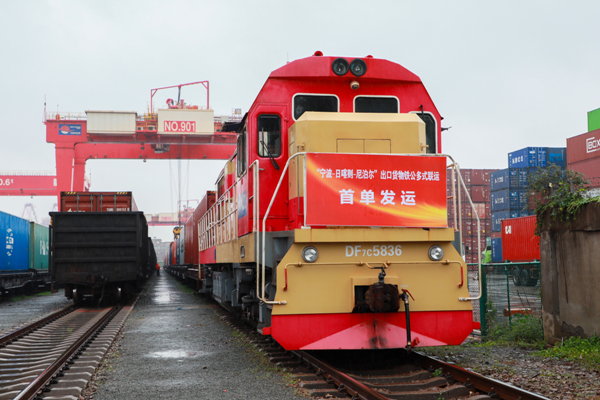Govt mulls over more fiscal support
Proactive policies help hard-hit market players through large-scale tax refunds
China is considering additional fiscal policy support while mounting an all-out effort to put existing measures into place, providing a strong buffer against downward pressures on the national economy, officials and experts said on Tuesday.
They added that large-scale tax refunds have started to benefit hard-hit market players in the first four months of the year, an indication of the government's proactive fiscal policy.
"Policies on all fronts are being implemented at a faster pace," Xu Hongcai, vice-minister of finance, said at a news conference on Tuesday.
The ministry will step up efforts to formulate additional policy tools, strengthen adjustments and beef up the role of fiscal policy in stabilizing the economy as it strives to achieve this year's economic and social development targets, Xu said.
Specifically, the implementation of favorable tax and fee policies helped vitalize market players by reducing the tax and fee burden of enterprises and increasing their cash flow by more than 1.6 trillion yuan ($236.8 billion) so far this year, Xu added.
The country started large-scale value-added tax credit refunds to small and micro enterprises in April, when approximately 800 billion yuan was refunded, accounting for more than one-third of the country's fiscal revenue in April 2021, official data showed.
With the tax refunds equivalent to a reduction in fiscal revenue, China's fiscal revenue dropped 4.8 percent year-on-year to about 7.43 trillion yuan in the first four months, the Ministry of Finance said on Tuesday.
Su Jingchun, an associate professor at the Chinese Academy of Fiscal Sciences, said the decline in fiscal revenue pointed to the difficulties acutely felt by market players, especially in the manufacturing sector.
"The clogged supply and logistic chains caused by the recent COVID-19 resurgence in Shanghai and the surrounding region are a prominent issue facing manufacturers, affecting trade growth and the overall economy," she said. "This has added to the constraints of fiscal revenue growth."
Against such a backdrop, industry experts said the additional fiscal and monetary measures that are being considered by the government are critical to meet this year's economic development goals, with the issue of special treasury bonds being one of the sensible options.
The country will speed up the tax refunds that can directly boost the cash flow of companies and mitigate their financial strain, Xu said, adding refunds of outstanding VAT credits to medium-sized and large enterprises will start ahead of schedule in May and June, respectively.
Xu added that the ministry is accelerating the issuance of local government special bonds to drive up investment and strengthen efforts to assist businesses facing acute difficulties, like alleviating pressure related to social insurance contributions.
Gao Ruidong, chief economist at Everbright Securities, said possible options of new fiscal tools include expanding this year's fiscal deficit and issuing special treasury bonds, which can help stabilize the operation of market players, supplement local fiscal capacities, and supporting the construction of key projects.
"The COVID-19 surge has hit both household consumption and private investment. A swifter fiscal policy to support infrastructure investment will play a significant role in keeping overall demand stable," Gao said.
Fiscal policy has stepped up efforts to stabilize investment growth. A total of 1.5 trillion yuan in local government special bonds had been issued as of Sunday. The issued bonds supported more than 11,000 investment projects as of the end of April, official data showed.
Chinese lenders recorded net foreign exchange purchases of $19 billion in April, roughly the same as the average monthly level seen in the first quarter and significantly higher than the same period of last year, propped up by buoyant cross-border inflows related to trade and foreign direct investment, the State Administration of Foreign Exchange said on Tuesday.

 China makes outstanding contributions to global energy transition
China makes outstanding contributions to global energy transition  Ningbo village inspires Malawi official
Ningbo village inspires Malawi official  A look at China's economic data in the first three quarters of 2024
A look at China's economic data in the first three quarters of 2024 


